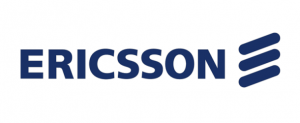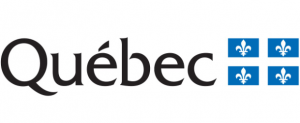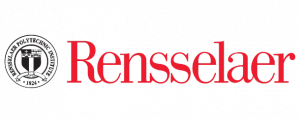
Quantum News Briefs August 21:
NQCIS (National Quantum Communication Infrastructure in Sweden)
 NQCIS falls under the umbrella of the EuroQCI initiative, where the Swedish consortium formed by industry (Ericsson AB, Quantum Scopes AB and quCertify AB) and academia (KTH, Chalmers, Linköping and Stockholm University) have been granted 100M SEK to test and deploy quantum key distribution systems tailored to the specific needs of Sweden. Quantum News Briefs summarizes an extensive August 15 article by Ericsson representatives.
NQCIS falls under the umbrella of the EuroQCI initiative, where the Swedish consortium formed by industry (Ericsson AB, Quantum Scopes AB and quCertify AB) and academia (KTH, Chalmers, Linköping and Stockholm University) have been granted 100M SEK to test and deploy quantum key distribution systems tailored to the specific needs of Sweden. Quantum News Briefs summarizes an extensive August 15 article by Ericsson representatives.
The project is part of a broader European Commission initiative within the Digital Europe Programme and is funded by the EU as well as Vinnova and the Wallenberg Centre for Quantum Technology (WACQT).
The project started January 2023 and to last for 2.5 years. As part of the EuroQCI (Europe Quantum Communication Infrastructure), the NQCIS will focus on some of these key aspects of the solution:
- Scalability: The infrastructure should be scalable to accommodate a growing number of users, nodes, and quantum devices. It should be capable of handling the increasing demand for secure communication in various sectors highlighted above.
- Interoperability: to ensure interoperability between different quantum communication platforms, enabling seamless communication across national and international networks. This allows users from different regions to communicate securely.
- Infrastructure Resilience: The project focuses on building a robust and resilient quantum communication infrastructure. It considers factors such as reliability, fault tolerance, and redundancy to maintain the continuity of communication services.
- Standards and Protocols: to develop common standards and protocols for quantum communication, ensuring compatibility and facilitating widespread adoption. Standardization is crucial for interoperability and the efficient operation of the infrastructure.
This includes validation of different implementations to identify the most effective solutions that meet Sweden’s needs for secure communications in metropolitan areas, long-distance networks and terrestrial to satellite links.
By joining this consortium, Ericsson unlocks a business innovation opportunity and lead the way for digital transformation. Click here to read article in-entirety.
 Norway, one of the world’s richest nations per capita, has researchers that excel among world leaders in their fields of research. Quantum News Briefs summarizes August 15 article in Phys.org by Norwegian Institute of Science & Technology.
Norway, one of the world’s richest nations per capita, has researchers that excel among world leaders in their fields of research. Quantum News Briefs summarizes August 15 article in Phys.org by Norwegian Institute of Science & Technology.
Increased cooperation between Norwegian industry and universities on quantum physics sensors is a win–win situation for society. Such sensors can provide new opportunities in areas as diverse as mineral extraction and agriculture.
In Norway, major industry players such as Equinor and Yara have the financial strength it will take to support the free basic research that is required. The Research Council of Norway also needs to obtain the necessary funding to finance free basic research to a sufficient extent.
Quantum sensors could revolutionize fields such as navigation and medical imaging.
The same can be said for areas as down-to-earth as mineral exploration and agriculture. In mineral exploration, quantum sensors can be used to detect minerals that are hard to find using traditional exploration methods. This could allow us to explore for mineral deposits at completely different depths to those we can access today.
It would allow farmers to obtain detailed information about soil fertility, crop health and water use. This information can then be used to optimize crops and reduce waste. By providing detailed information about soil and mineral properties, this new type of sensor can help reduce the environmental impact from these industries and make them more sustainable, contributing to the green transition. These are important issues the global community needs to consider in order to sustainably feed an ever-growing population.
There is no doubt that basic research in this field will be essential. Quantum sensors are only one of many examples for which basic research in natural sciences will be crucial in creating important technological breakthroughs. Click here to read article in-entirety.
Quebec has invested nearly $200M in quantum computing over 7 years
 The Quebec government has invested nearly $200 million in quantum technology over a seven-year period in the hope that the province will become a global destination for quantum computing. Quantum News Briefs summarizes August 15 article by from CBC.
The Quebec government has invested nearly $200 million in quantum technology over a seven-year period in the hope that the province will become a global destination for quantum computing. Quantum News Briefs summarizes August 15 article by from CBC.
Two new quantum computers, MonarQ and IBM Quantum One, represent some of the first steps in that direction.
“It’s a major leap forward for Quebec to have a quantum computer,” said Alexis Gouslisty, the chief technology officer of PINQ2, a non-profit organization based in Sherbrooke, Que., that will manage the IBM computer when it becomes operational sometime later this year.
The National Research Council of Canada (NRC) predicts that in a few decades the sector will be worth nearly $140 billion in Canada.But as the field blossoms, there are some concerns about how this technology will, eventually, be used.
Najafi-Yazdi proudly touts MonarQ as not just the first universal quantum computer in Canada but one that was built entirely in Canada as well.
Before IBM Quantum One and MonarQ, both of which are set to begin operating in the coming months, there was only one quantum computer in Quebec, a machine used by researchers at the Valcartier military base, which was also built by Anyon, and only a few other early-stage quantum computers elsewhere in the country, too.
MonarQ and IBM Quantum ONE, however, are “universal” quantum computers, meaning they can be programmed to solve a variety of problems as opposed to previous versions which were much more limited.
The computers will also be used for slightly different purposes. MonarQ, the Anyon machine, is being delivered to Calcul Quebec, a non-profit whose goal is to provide researchers with cutting-edge computers. IBM Quantum One is being operated by PINQ2, a non-profit funded by the Quebec government that is helping companies — or anyone interested in the technology — dip their toe in it.
The private sector is interested too. Banks and pharmaceutical companies, among others, are interested in quantum computing because it is likely to dramatically change their fields in the coming years. Click here to read the complete CBC News article.
Rensselaer Polytechnic Institute plans to deploy first IBM Quantum System One on a university campus

Rensselaer Polytechnic Institute will become the first university in the world to house an IBM Quantum System One. Quantum News Briefs summarizes the announcement.
The IBM quantum computer, intended to be operational by January of 2024, will serve as the foundation of a new IBM Quantum Computational Center in partnership with Rensselaer Polytechnic Institute (RPI). By partnering, RPI’s vision is to greatly enhance the educational experiences and research capabilities of students and researchers at RPI and other institutions, propel the Capital Region into a top location for talent, and accelerate New York’s growth as a technology epicenter.
RPI’s advance into research of applications for quantum computing will represent a more than $150 million investment once fully realized, aided by philanthropic support from Curtis R. Priem ’82, vice chair of RPI’s Board of Trustees. The new quantum computer will be part of RPI’s new Curtis Priem Quantum Constellation, a faculty endowed center for collaborative research, which will prioritize the hiring of additional faculty leaders who will leverage the quantum computing system.
“Today’s quantum computers are novel, scientific tools that can be used to model problems that are extremely difficult, and perhaps impossible, for classical systems, signaling that we are now entering a new phase of utility for quantum computing,” said Darío Gil, Senior Vice President and Director of IBM Research. “We expect this collaboration to continue to have tremendous impact for the area’s growth as a corridor of innovation, from New York City to the Capital Region. We are thrilled to collaborate with RPI as we continue to nurture the global quantum ecosystem of tomorrow.”
RPI has a storied history in advanced technology and is already home to one of the most powerful supercomputers in the world, the Artificial Intelligence Multiprocessing Optimized System (AiMOS). AiMOS, at a top peak processing speed of 11.03 petaFLOPS, is currently the most powerful private university-based supercomputer in the United States. The IBM POWER9 CPU and NVIDIA GPU-equipped supercomputer enables users to explore new AI applications. Click here to read the complete announcement.
Sandra K. Helsel, Ph.D. has been researching and reporting on frontier technologies since 1990. She has her Ph.D. from the University of Arizona.
- SEO Powered Content & PR Distribution. Get Amplified Today.
- PlatoData.Network Vertical Generative Ai. Empower Yourself. Access Here.
- PlatoAiStream. Web3 Intelligence. Knowledge Amplified. Access Here.
- PlatoESG. Automotive / EVs, Carbon, CleanTech, Energy, Environment, Solar, Waste Management. Access Here.
- PlatoHealth. Biotech and Clinical Trials Intelligence. Access Here.
- ChartPrime. Elevate your Trading Game with ChartPrime. Access Here.
- BlockOffsets. Modernizing Environmental Offset Ownership. Access Here.
- Source: https://www.insidequantumtechnology.com/news-archive/quantum-news-briefs-august-21-nqcis-national-quantum-communication-infrastructure-in-sweden-quantum-sensors-paving-the-way-for-new-technologies-in-norway-quebec-has-invested-nearly-200m-in-quant/
- :has
- :is
- :not
- :where
- 11
- 15%
- 2023
- 2024
- 7
- a
- About
- above
- Academia
- accelerate
- access
- accommodate
- across
- Additional
- Adoption
- advance
- advanced
- Advanced Technology
- agriculture
- AI
- allow
- allows
- already
- also
- among
- an
- and
- Announcement
- anyone
- applications
- ARE
- areas
- arizona
- article
- artificial
- artificial intelligence
- AS
- aspects
- At
- Aug
- AUGUST
- Banks
- base
- based
- basic
- BE
- because
- become
- becomes
- been
- begin
- being
- between
- Billion
- board
- both
- breakthroughs
- broader
- Building
- built
- business
- but
- by
- CAN
- Canada
- capabilities
- capable
- Capita
- capital
- Center
- centre
- Chair
- change
- chief
- chief technology officer
- City
- class
- click
- collaborate
- collaboration
- collaborative
- coming
- commission
- Common
- communicate
- Communication
- Communications
- community
- Companies
- compatibility
- complete
- completely
- computer
- computers
- computing
- Concerns
- Consider
- considers
- consortium
- continue
- continuity
- contributing
- cooperation
- could
- Council
- country
- Creating
- crop
- crops
- crucial
- Currently
- cutting-edge
- decades
- delivered
- Demand
- deploy
- deposits
- Depths
- destination
- detailed
- detect
- develop
- Devices
- different
- difficult
- digital
- Digital Transformation
- Dip
- direction
- Director
- distribution
- diverse
- doubt
- dramatically
- early stage
- EC
- ecosystem
- educational
- Effective
- efficient
- elsewhere
- enables
- enabling
- enhance
- ensure
- ensuring
- entering
- entirely
- environmental
- Equinor
- Ericsson
- essential
- EU
- Europa
- Europe
- European
- european commission
- eventually
- ever-growing
- examples
- Excel
- expect
- Experiences
- exploration
- explore
- extraction
- extremely
- facilitating
- factors
- Falls
- farmers
- few
- field
- Fields
- finance
- financial
- Find
- First
- first steps
- Focus
- focuses
- For
- formed
- Forward
- Foundation
- Free
- from
- Frontier
- full
- fully
- funded
- funding
- Global
- goal
- Government
- granted
- greatly
- Green
- Growing
- Growth
- Handling
- Hard
- Have
- Health
- help
- helping
- her
- here
- Highlighted
- Hiring
- history
- Home
- hope
- House
- How
- However
- HTTPS
- IBM
- ibm quantum
- identify
- image
- Imaging
- Impact
- implementations
- important
- impossible
- in
- includes
- increasing
- industries
- industry
- information
- Infrastructure
- Initiative
- Innovation
- inside
- Inside Quantum Technology
- Institute
- institutions
- Intelligence
- intended
- interested
- International
- Interoperability
- into
- invested
- investment
- issues
- IT
- January
- joining
- jpg
- just
- Key
- Last
- later
- lead
- leaders
- Leap
- Leverage
- likely
- Limited
- links
- location
- machine
- maintain
- major
- make
- manage
- many
- max-width
- meaning
- medical
- Meet
- methods
- Military
- million
- mineral
- minerals
- model
- months
- more
- most
- much
- National
- Nations
- Natural
- Navigation
- nearly
- necessary
- needs
- networks
- New
- new quantum computer
- New technologies
- New York
- new york city
- New York’s
- news
- no
- nodes
- non-profit
- non-profit organization
- Norway
- Norwegian
- novel
- now
- number
- nurture
- Nvidia
- obtain
- of
- Officer
- on
- once
- ONE
- only
- operated
- operating
- operation
- operational
- opportunities
- Opportunity
- opposed
- Optimize
- optimized
- or
- order
- organization
- Other
- Others
- over
- part
- partnering
- Partnership
- Paving
- Peak
- per
- perhaps
- period
- Pharmaceutical
- phase
- philanthropic
- Physics
- plans
- Platforms
- plato
- Plato Data Intelligence
- PlatoData
- players
- population
- posted
- powerful
- Predicts
- president
- previous
- Prioritize
- private
- private sector
- problems
- processing
- programme
- programmed
- project
- Propel
- properties
- protocols
- proudly
- provide
- providing
- purposes
- Quantum
- Quantum Computer
- quantum computers
- quantum computing
- quantum physics
- Quantum sensors
- quantum technology
- Quebec
- R
- Read
- realized
- reduce
- reduce waste
- region
- regions
- reliability
- Reporting
- represent
- required
- research
- researchers
- resilience
- resilient
- revolutionize
- robust
- Said
- same
- satellite
- scalable
- Science
- Science & Technology
- SCIENCES
- scientific
- seamless
- sector
- Sectors
- secure
- securely
- senior
- sensors
- serve
- Services
- set
- she
- should
- since
- situation
- slightly different
- Society
- soil
- solution
- Solutions
- SOLVE
- some
- specific
- speed
- standards
- started
- States
- Steps
- strength
- Students
- such
- sufficient
- supercomputer
- support
- sustainable
- sustainably
- Sweden
- Swedish
- system
- Systems
- tailored
- Take
- Talent
- technological
- Technologies
- Technology
- terrestrial
- test
- than
- that
- The
- The Capital
- the world
- their
- Them
- then
- There.
- These
- they
- this
- this year
- those
- thrilled
- to
- today
- tolerance
- tomorrow
- too
- tools
- top
- traditional
- Transformation
- transition
- tremendous
- true
- type
- umbrella
- under
- United
- United States
- Universal
- Universities
- university
- unlocks
- us
- use
- used
- users
- using
- utility
- validation
- variety
- various
- versions
- vice
- Vice President
- vision
- was
- Waste
- Water
- Way..
- we
- WELL
- were
- when
- which
- WHO
- whose
- widespread
- will
- with
- within
- world
- world’s
- worth
- would
- year
- years
- york
- zephyrnet













